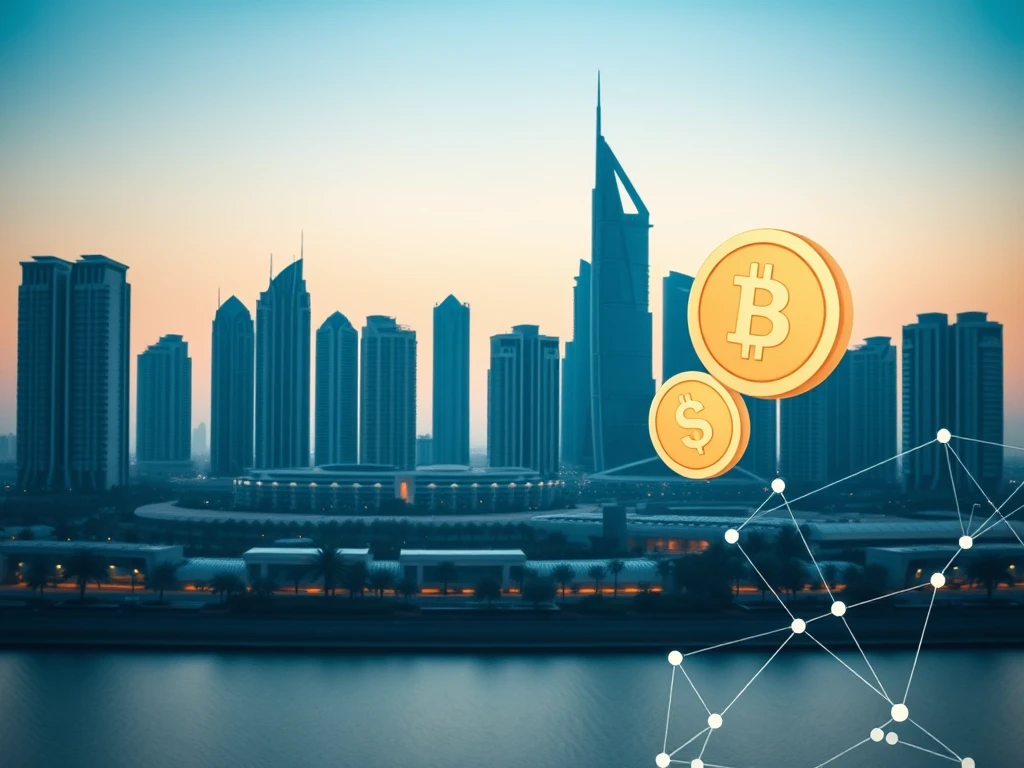Ripple RLUSD Secures Landmark Dubai Stablecoin Approval, Boosts UAE Crypto Adoption

Big news from one of the world’s leading financial hubs! Ripple’s recently launched stablecoin, Ripple RLUSD, has received a significant green light from the Dubai Financial Services Authority (DFSA). This approval is a major step for the adoption of regulated digital assets in the Middle East.
What Does the DFSA Stablecoin Approval Mean?
The Dubai Financial Services Authority (DFSA) is the independent financial regulator for the Dubai International Financial Centre (DIFC), a special economic zone and financial district serving the Middle East, Africa, and South Asia. Its approval is crucial for any virtual asset operating within this key hub.
The DFSA stablecoin approval for Ripple RLUSD means that companies registered within the DIFC can now officially use the stablecoin for a variety of virtual asset services. These include core financial functions like payments, treasury management, and other related services. The DIFC is home to nearly 7,000 registered businesses, making this a substantial market opportunity.
Under the DIFC’s virtual assets framework, only tokens recognized by the DFSA are permitted within its regulated ecosystem. RLUSD joins a select group of approved stablecoins, including Circle’s USDC and EURC, marking its status as a compliant digital asset in this jurisdiction.
How Will Ripple RLUSD Impact UAE Crypto Adoption?
Ripple executives see this approval as a direct response to growing market demand. Reece Merrick, Ripple’s managing director for the Middle East and Africa, noted the dynamic nature of the UAE’s digital economy and expressed seeing “huge interest from businesses of all sizes for cross-border payments and digital asset custody solutions.”
The approval facilitates wider UAE crypto adoption by providing a regulated and recognized stablecoin option for businesses operating in the DIFC. Ripple is already working with local partners, including digital bank Zand and fintech platform Mamo, who are expected to be early users of Ripple’s regulated payment services utilizing RLUSD.
Supporting XRP Ledger Real Estate Tokenization
Beyond traditional financial services, Ripple RLUSD is set to play a role in innovative projects within Dubai. Ripple confirmed that the stablecoin will support the Dubai Land Department’s (DLD) blockchain initiative aimed at tokenizing real estate title deeds.
This project involves recording these property title deeds directly onto the XRP Ledger real estate platform. The DLD announced the pilot phase of this initiative earlier this year, positioning itself as a registration entity for blockchain-based property tokenization. The integration of a regulated stablecoin like RLUSD is vital for facilitating transactions and settlements within such a system, adding a layer of stability and trust to real-world asset tokenization efforts.
A Step Forward for Regulated Digital Assets
This latest development follows Ripple securing a full license to operate in the DIFC just weeks prior. The approval of Ripple RLUSD by the DFSA, alongside its existing approval from the New York Department of Financial Services (NYDFS) Trust Company Charter, positions it as one of the few stablecoins globally to achieve regulatory recognition from multiple prominent authorities.
The move signals growing confidence from regulators in key financial centers regarding stablecoins, particularly those issued by established entities and designed with compliance in mind. For Ripple, it represents significant progress in its strategy to expand the utility and reach of the XRP Ledger ecosystem and its associated products.
In Conclusion: What This Means
The DFSA’s approval of Dubai stablecoin, Ripple RLUSD, is a landmark event. It unlocks new possibilities for regulated virtual asset services within the influential DIFC, supports cutting-edge initiatives like real estate tokenization on the XRP Ledger, and accelerates UAE crypto adoption among businesses. This regulatory clarity is a positive sign for the broader digital asset market, highlighting the potential for stablecoins to bridge traditional finance and the blockchain world in a compliant manner.








